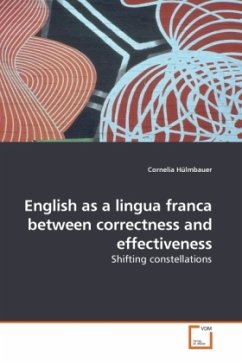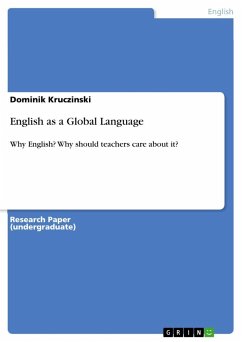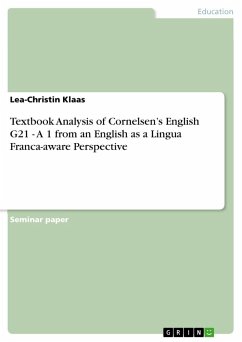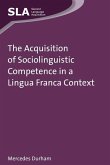This book is concerned with one of the most fundamental issues in English as a lingua franca (ELF) theory and use: the friction between lexicogrammatical correctness and communicative effectiveness. Critically reconsidering traditional frameworks of error analysis, the book provides reflections on the paradigm shift currently under way in non-native language research. Rather than adherence to externally-defined norms, the main priorities in ELF are argued to be mutual intelligibility between speakers and appropriateness to context. The investigation of potential communicative resources within the speakers' repertoires is illustrated with many examples from authentic spoken ELF interactions. Looking into the particular forms and processes at work in ELF talk, the book explores possible constellations of correctness and effectiveness. The relationship between these two traditional concepts is found to be anything but straightforward in the recently emerging lingua franca contexts, which has crucial implications for future approaches to ELF in use.
Bitte wählen Sie Ihr Anliegen aus.
Rechnungen
Retourenschein anfordern
Bestellstatus
Storno








